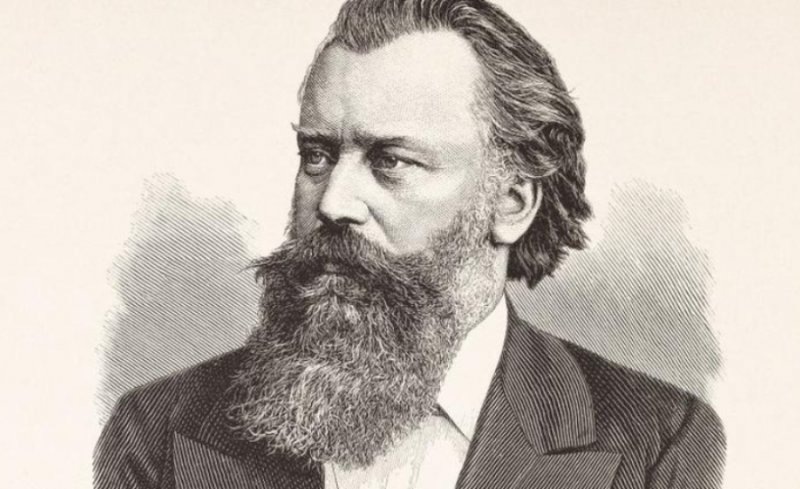Who Is Johannes Brahms Father Complete Details About His Parents
German Romantic composer and pianist Johannes Brahms (1833-1897) was famous. His works included symphonies, concertos, chamber music, choir pieces, and solo piano pieces. He is best known for composing four symphonies, violin concerto, German Requiem, and Hungarian Dances. Brahms earned acclaim for his painstaking attention to detail, profound emotional expression, and his adeptness in harmoniously fusing classical frameworks with romantic melodies and harmonies.
Johannes Brahms Early Life
Johannes Brahms was born in Hamburg, Germany, on May 7, 1833. Johann Jakob Brahms, his father, played double bass in the Hamburg Philharmonic Society. Meanwhile, his mother, Johanna Henrika Christiane Nissen, not only excelled as a seamstress but also possessed a remarkable musical gift.
Young Brahms displayed a remarkable affinity for music from an early age, immersing himself in piano playing and composition. He received his initial guidance from his father and later sought instruction from various local musicians. Remarkably, at the tender age of 10, he stepped onto the public stage in Hamburg to share his musical prowess.
The turning point arrived in 1853 when Brahms crossed paths with Hungarian violinist Joseph Joachim. Through this encounter, he was introduced to the esteemed composer and pianist Robert Schumann. Recognizing Brahms’ exceptional talent, Schumann penned a pivotal article about him in the influential publication, Neue Zeitschrift für Musik. This endorsement from Schumann proved instrumental in propelling Brahms into the spotlight as a composer, leading to a series of commissions and performances.
Johannes Brahms Education and Career
Johannes Brahms didn’t follow the traditional path of formal music education at a conservatory. He gleaned the fundamentals from his father and local mentors, but much of his musical proficiency was self-taught. In 1853, he embarked on a concert tour alongside Hungarian violinist Ede Reményi, journeying through cities in Germany, Austria, and Hungary. This tour proved instrumental in giving him exposure and establishing his standing as a professional musician.
Brahms’ significant breakthrough came with a commission from the publisher Julius Schuberth to compose a piano sonata. This piece, along with his Variations on a Theme by Robert Schumann, contributed to his ascent as a rising star in the classical music realm.
Taking charge of a women’s choir in Hamburg, Brahms gained valuable experience in choral music. Simultaneously, he delved into roles as a pianist and conductor, extensively touring Germany and Austria.
In 1882, he assumed the role of conductor at the Singakademie in Vienna, leading a chorus of over 200 singers. He composed his notorious German Requiem and First Symphony around this time.
Brahms received honorary doctorates from Cambridge and Breslau universities during his distinguished career. He also distinguished himself at the Prussian Academy of Arts and Sciences. Despite his success, Brahms was humble and avoided the spotlight. His death in 1897 ended his composing and performance.
Impressing other musicians
In 1850, Johannes Brahms crossed paths with the Hungarian violinist Eduard Reményi, a fateful encounter that would profoundly influence his musical journey. Reményi introduced Brahms to the spirited world of gypsy dance songs, leaving an indelible mark on his later compositions. Over the following years, Brahms embarked on a creative journey, crafting numerous pieces for the piano.
Brahms and Reményi performed successful concert tours in 1853. They met Joseph Joachim (1831–1907), a key figure in Brahms’ career while traveling. Joachim introduced them to Franz Liszt (1811–1886) in Weimar, Germany. Liszt welcomed them and was captivated by Brahms’ music. Liszt wanted to include Brahms in his circle of composers, but Brahms respectfully declined because he didn’t like his style. In a letter to Robert Schumann (1810–1856), Joachim praised Brahms.
Brahms met Robert Schumann and Clara in 1853. Schumann’s love for the young composer was limitless. He wrote glowing articles about Brahms and helped publish some of his early works. Brahms wrote the Piano Trio No. 1, Variations on a Schumann Theme, and Ballades in 1854. Brahms was summoned to Düsseldorf, Germany, where Schumann had a breakdown and attempted suicide. Brahms stood by the Schumanns’ side, providing support to Clara even after Robert Schumann’s tragic passing in 1856. To sustain himself financially, Brahms turned to private piano instruction, alongside occasional concert tours. It was during two concerts, featuring the singer Julius Stockhausen, that Brahms solidified his reputation as an esteemed composer of songs.
Late masterpieces
Johannes Brahms father passed in 1872, Brahms took a brief respite before assuming the role of artistic director for the Gesellschaft der Musikfreunde (Friends of Music) in Vienna. During this period, he continued to unleash masterpieces from his creative wellspring. He composed fervently, embarked on concert tours primarily to refine his own compositions, and relished in extended periods of leisure. With financial stability on his side, Brahms was now free to follow his own desires. He resigned in 1875 because conducting the Gesellschaft der Musikfreunde became too much.
He spent the summer writing Symphony No. 1 and preparing Symphony No. 2. Brahms received an honorary degree from Breslau University in 1880 and responded with two orchestral concertos. It was around this time that Brahms fell under the enchantment of Italy, a place he would return to often for the remainder of his life. For Brahms, vacations were synonymous with composing, and this period saw the birth of symphonies, intricate concertos for piano and violin, and a plethora of other compositions and publications.
Much of the global acclaim garnered by Brahms’s orchestral works was indebted to the efforts of their exceptional interpreter, Hans von Bülow. Bülow, who had shifted his allegiance from the Liszt-Wagner faction to Brahms, invested tremendous energy into ensuring Brahms’s compositions received impeccably executed performances.
In his sixties, Brahms experienced a swift aging process, accompanied by a marked decrease in his creative output. He frequently alluded to having reached the culmination of his creative endeavors. Nevertheless, the works from this final phase exude a profound grandeur and focus. Notably, his last published works, the Vier ernste Gesänge (Four Serious Songs), stand as crowning achievements of his illustrious career.
Brahms’ health deteriorated further upon receiving news of Clara Schumann’s passing in 1896. On April 3, 1897, he succumbed to liver cancer. He found his resting place beside luminaries Beethoven and Franz Schubert (1797–1828) and was revered by Vienna and the entire musical community worldwide.
Family
Johannes Brahms father, hailed from a lineage of carpenters and traders. However, he opted to diverge from the family tradition and pursued a musical path. After apprenticing under Theodor Muller for three years, he ventured to Hamburg at the age of 19 to embark on his musical career. Proficient across a range of instruments, he particularly excelled in the double bass and horn. Initially, he served as a cornet player in the city’s guard before securing a position in the esteemed Hamburg Philharmonic Orchestra as a double bassist.
At 24, he tied the knot with Johanna Henrika Christiane Nissen, a skilled seamstress who would later take on work as a domestic servant. She hailed from Hamburg, and their paths crossed when Jakob rented a room from Henrika’s parents. Despite early difficulties, they continued in their marriage. Their relationship ended in 1864, and Brahms’ mother died a year later. In 1866, Jakob remarried, a union that had Brahms’ wholehearted approval.
Johannes Brahms Father Details
The father of Johannes Brahms was Johann Jakob Brahms, often spelled Jakob Brahms. On January 27, 1806, he was born in Heide, a town in the Duchy of Holstein (now in Germany). The double bassist Jakob Brahms was a multi-instrumentalist.
In 1830, he wed Johanna Henrika Christiane Nissen. Johann Jakob (1831), Friedrich (1833), and Johannes (1833), the youngest, were their three offspring. Sadly, Johann Jakob Brahms, the oldest son, passed away at a young age, which had a significant impact on the Brahms family.
From an early age, Johann Jakob Brahms was crucial in developing Johannes’ musical talent. He gave his kid music instruction and supported his growth as a pianist and composer. Johannes Brahms frequently credited his father’s influence for his early exposure to music and his ensuing passion in writing.
Johann Jakob Brahms tragically passed away in 1872, at a time when Johannes was already a well-known and established composer. In mourning, Johannes Brahms dedicated some of his works to his father. Jakob Brahms helped his son Johannes Brahms become a musical prodigy.
Retirement
At the age of 57 in 1890, Brahms declared his retirement from composing. Yet, he didn’t strictly adhere to this resolution. In fact, he went on to create several significant pieces, particularly for the clarinet, owing much of this late-life productivity to his close bond with the accomplished clarinetist, Richard Mühlfeld.
Legacy
Johannes Brahms stands as a monumental figure in the realm of classical music, leaving behind a legacy of unparalleled significance. Renowned as one of the preeminent composers of the Romantic period, his compositions remain cherished and embraced on a global scale.
Brahms distinguished himself through his scrupulous attention to detail, profound emotional resonance, and his remarkable skill in seamlessly fusing classical frameworks with the emotive harmonies and melodies of the Romantic era. A virtuoso of counterpoint and orchestration, his pieces garnered admiration for their intricate complexity and opulent textures.
The works of Brahms influenced Gustav Mahler, Arnold Schoenberg, and Sergei Rachmaninoff. Today, orchestras, chamber ensembles, and soloists worldwide present Brahms’ music. Symphonies, concertos, and choral works are among the most beloved and performed in classical music. Brahms inspired musicians and music lovers as a composer, pianist, and conductor.
People Also Ask (FAQs)
- Who was Johannes Brahms’ father?
Johannes Brahms’ father was Johann Jakob Brahms. He played double bass in the Hamburg Philharmonic.
- How did Johannes Brahms’ father influence his musical career?
Johann Jakob Brahms, Johannes’ father, helped him develop musical talent. He exposed him to music, taught him piano and composition, and encouraged his progress.
- Did Johannes Brahms’ father have a background in music?
Johann Jakob Brahms, Johannes Brahms’ father, was a carpenter and businessman who became a musician. He played many instruments, especially double bass and horn.
- What impact did Johannes Brahms’ father’s passing have on him?
Johannes Brahms was deeply affected by his father’s 1872 death. Johannes Brahms dedicated several of his compositions to his father in sadness and attributed him with introducing him to music and creating.
- Did Johannes Brahms’ father play a role in his early public performances?
Yes, Johannes Brahms’ father played a role in his early public performances. He provided initial guidance and instruction, and at the age of 10, Brahms performed in public in Hamburg, showcasing his musical talent.
- How did Johannes Brahms’ father’s musical background contribute to his own musical development?
Johannes Brahms’ father’s musical background provided him with early exposure to music and a solid foundation in musical fundamentals. This upbringing played a crucial role in nurturing Brahms’ innate musical talent.
Final Words
Johannes Brahms shaped classical music. Brahms’ sophisticated work, deep emotional resonance, and flawless synthesis of classical structure and lyrical expressiveness enchant audiences worldwide.
Johann Jakob Brahms, his father, guided Johannes on a musical journey that would change his life. Brahms’ path from Hamburg to the top of his career was distinguished by dedication and love of music.
When we think of Johannes Brahms, we also think of his supporters and his legacy. Brahms’ symphonies, concertos, and immortal masterpieces inspire generations of musicians and music lovers.
Modern listeners are taken to a realm of great beauty and emotional depth by Brahms’ melodies. His creativity continues to inspire us and remind us of music’s soul-touching power.
Johannes Brahms is one of the greats of musical history, proving that passion, dedication, and the support of those who believe in our aspirations may unlock limitless potential. His legacy is a timeless symphony in our hearts.






